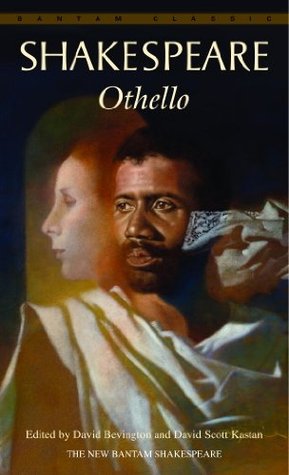More on this book
Community
Kindle Notes & Highlights
a fascination with evil in its most virulent and universal aspect.
These plays study the devastating effects of ambitious pride, ingratitude, wrath, jealousy, and vengeful hate—the deadly sins of the spirit
the center of interest always returns in Othello to the destruction of a love through jealousy. Othello is a tragic portrait of a marriage.
Social order is not seriously shaken by Othello’s tragedy.
The battle of good and evil is, of course, cosmic, but in Othello that battle is realized through a taut narrative of jealousy and murder.
Othello’s cast is small, and the plot is concentrated to an unusual degree on Othello, Desdemona, and Iago. What Othello may lose in breadth it gains in dramatic intensity.
The images employed by Iago to describe the coupling of Othello and Desdemona are revoltingly animalistic, sodomistic.
This degraded view reduces the marriage to one of utter carnality, with repeated emphasis on the word “gross”: Desdemona has yielded “to the gross clasps of a lascivious Moor” and has made “a gross revolt” against her family and society (lines 129, 137).
Sex and money are both commodities to be protected by watchful fathers against libidinous and opportunistic children.
the carnal vision of love we confront is calculatedly disturbing, because it seems so equated with a pejorative image of blackness.
referred to disparagingly by his detractors as the “thick-lips,” with a “sooty bosom” (1.1.68; 1.2.71);
From the ugly start of the play, Othello and Desdemona have to prove the worth of their love in the face of preset attitudes against miscegenation.
We as audience can perceive the racial bias in Brabantio’s view and can recognize also in him the type of imperious father who conventionally opposes romantic love.
It is sadly ironic that he should now prefer Roderigo as a son-in-law, evidently concluding that any white Venetian would be preferable to the prince of blacks.
Whatever others may think, she never gives the slightest indication of regarding her husband as different because he is black and old.
Her “preferring” Othello to her father, like Cordelia’s placing her duty to a husband before that to a father, is not ungrateful but natural and proper.
Othello’s tragedy is not that he is easily duped, but that his strong faith can be destroyed at such terrible cost. Othello never forgets how much he is losing. The threat to his love is not an initial lack of his being happily married, but rather the insidious assumption that Desdemona cannot love him because such a love might be unnatural.
Iago belongs to a select group of villains in Shakespeare who, while plausibly motivated in human terms, also take delight in evil for its own sake:
They are not, like Macbeth or like Claudius in Hamlet, men driven by ambition to commit crimes they clearly recognize to be wrong.
these villains are essentially conscienceless, sinister, and amused by their own cunning.
They are related to one another by a stage metaphor of personified evil derived from the Vice of the morality play, whose typical role is to win the Mankind figure away from vir...
This highlight has been truncated due to consecutive passage length restrictions.
Othello’s jealousy stems from a profound suspicion that others cannot love him because he does not deem himself lovable.
Iago’s means of temptation, then, is to persuade Othello to regard himself with the eyes of Venice, to accept the view that Othello is himself alien and that any woman who loves him does so perversely.
The horror and pity of Othello rests, above all, in the spectacle of a love that was once so whole and noble made filthy by self-hatred.
his apparent need to degrade her for the very thing he finds desirable in her—a tendency so common among men that Freud, in the early twentieth century, would declare it to be “the most prevalent form of degradation in erotic life”
In nothing does Iago so resemble the devil as in his wish to see Othello destroy the innocence and goodness on which his happiness depends.


